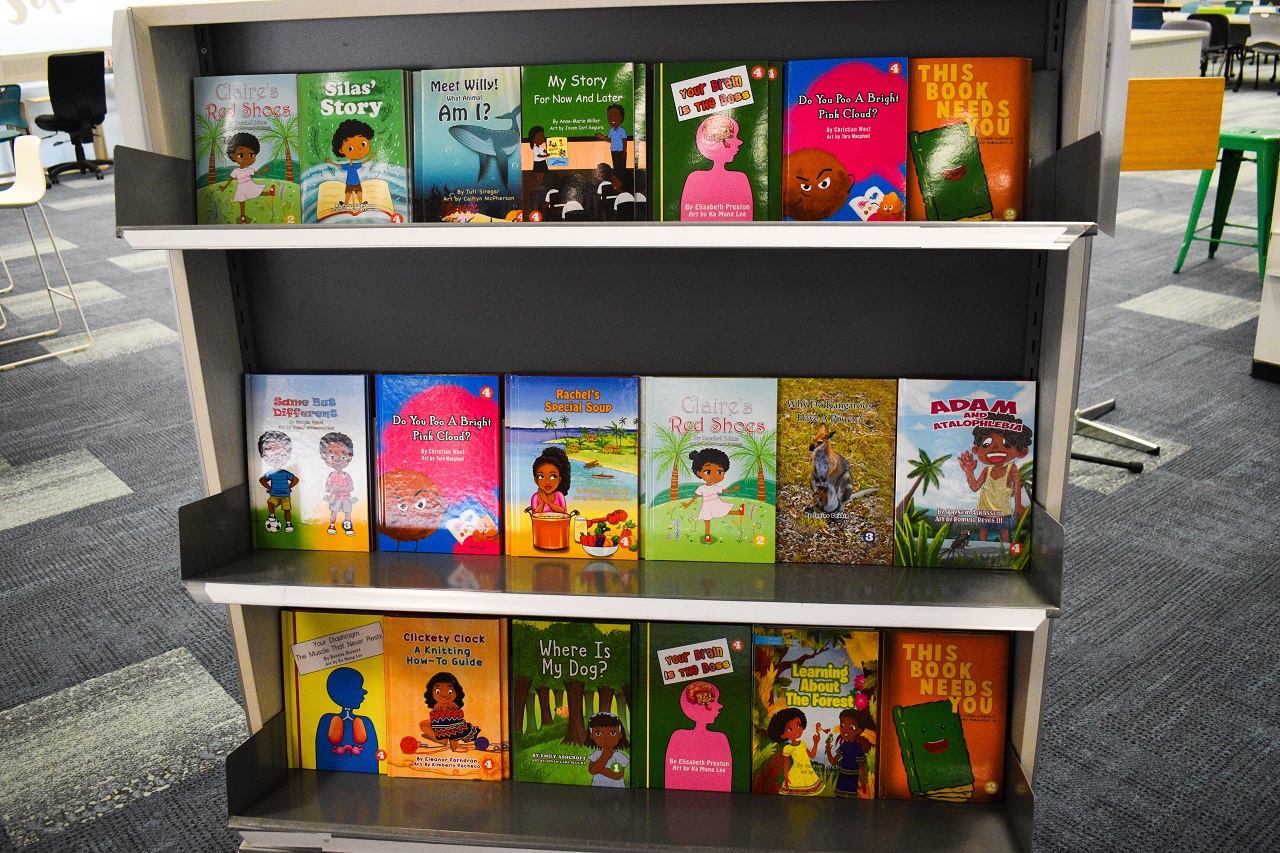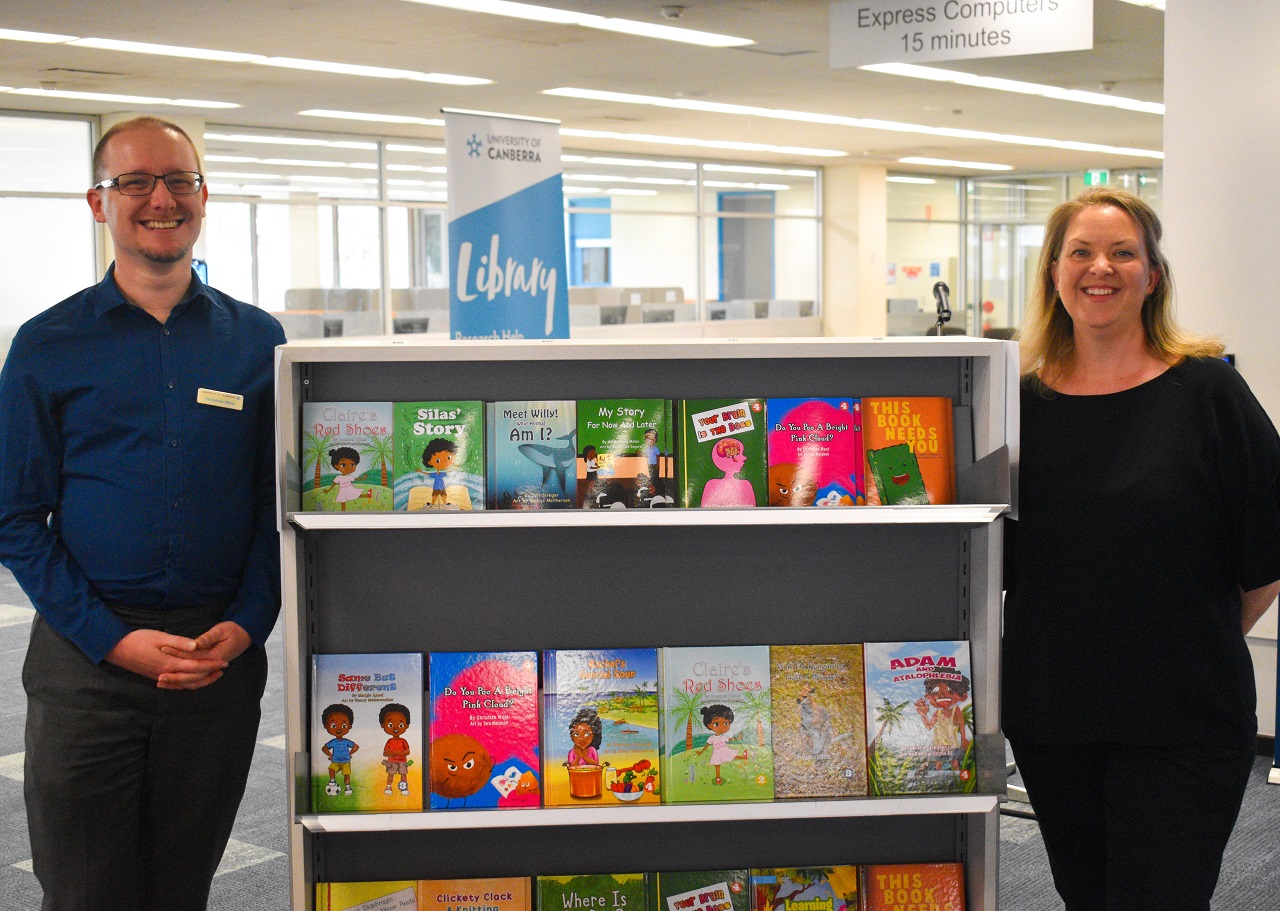Community Connections
UC researchers using expertise for good
Superheroes, monsters, fairies and other magical creatures have featured in children’s books and tales for thousands of years.
But imagine if you live in a house with no electricity or running water. Imagine that the only food you have access to is something that you can catch or grow yourself. Assume you have limited access to manufactured toys and games and have no idea who Spiderman or Wonder Woman is.
This is the reality for so many children who are growing up without books at their disposal. The latest UNESCO research shows that approximately 250 million children around the world won’t learn to read, even if they are lucky enough to attend school.
Library for All, a not-for-profit organisation is trying to change those statistics. The University of Canberra’s partnership with the organisation allows the university’s world-leading researchers to turn their ideas into children’s books for those in communities including Papua New Guinea, Laos and Timor-Leste to enjoy.
Just over 12 months ago, the first group of UC researchers took part in a workshop where they were taught how to turn their complicated research and expertise into a short children’s book. The non-fiction books are created by people who are specialists in their field, with the high concepts turning into books that were palatable and engaging for kids.

“Most of our books are created by and for communities, which in turn gives them great cultural relevance. We do workshops in all of our program areas so that people can share their own stories,” says Dr Lara Cain Gray, Senior Research Librarian at Library for All Australia.
“To balance out the library, we tap into expertise like UC’s, to boost the Library in other ways.”
Library for All is the brainchild of Founder/CEO Rebecca McDonald, who knew something had to be done after visiting Haiti in 2010 following the devastating earthquake. She noticed there were a lot of schools without books and at first assumed it was due to the earthquake, but soon realised that those schools had never had books or other educational resources at their disposal.
Since then, Library for All has established a globally available free digital library, serving a unique curated collection of children’s books.
The organisation has published over 600 original titles over two years.
Library for All is now delivering bespoke spark kits to pilot schools in Papua New Guinea, Laos and Timo-Leste; these kits are essentially a library in a box. The kits are made up of 40 tablets, delivering an instant library of 600 books in a classroom that potentially never had books before.
Lara says Library for All’s impact has been widely felt. “The data we are working on in conjunction with UC researchers shows that when kids have access to meaningful, engaging and affordable books, their literacy levels quickly improve,” she says.
UC’s partnership with Library for All began back in 2017, when Associate Professor in Early Childhood and Primary Education Dr Kym Simoncini joined a consortium with Library for All headed by World Vision to improve elementary children’s literacy and numeracy skills in PNG. In 2018 she heard the organisation was looking for non-fiction books, and realised the role UC could play. Kym knew that UC had experts who could create books rooted in the real world, and help people learn in a different way.

The books from the first cohort of researchers who undertook the workshop have now been printed and are set to be distributed to the communities who need them most.
“The authors and illustrators who took part have made a genuine, tangible difference to children for whom history, poverty or remoteness prevents access to books or educational resources,” says Lara.
The experts can be assured that their books are making a difference.
In late 2019, a second workshop was held for a new group of UC researchers who wanted to contribute more books. Christian West, UC’s head librarian realised the importance of the workshops and hopes to make it an annual event.
Kym has been spending time in Papua New Guinea undertaking more research and has seen firsthand just how much the books are making a difference.
“The comprehension results of students who had access to the LFA books were higher than the children in the control group who were yet to receive the books,” says Kym. She adds that the cultural relevance of the community-created books adds to their readability for kids.
“It is easier to read culturally relevant books because you can use your background knowledge to help you,” she says. “Reading is much more than just words on a page.”
Words by Katarina Slavich. Photos by Madeleine Wood and supplied.